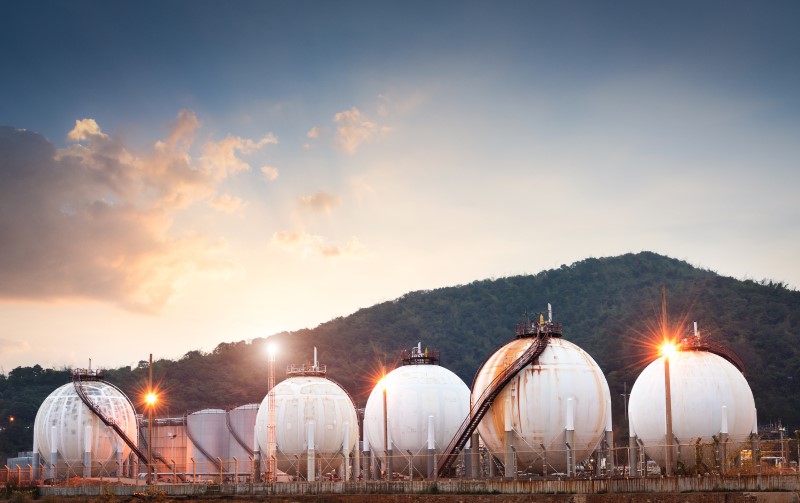WoodMac: Gas, LNG Prices to Remain Relatively Weak in 2024 Amid Subdued Demand
(Reuters) — Global prices of gas and LNG are expected to remain relatively weak in 2024, with demand subdued due to high storage levels in Europe and Asia and a mild Northern Hemisphere winter, consultancy Wood Mackenzie said on Wednesday.
"Wood Mackenzie has been forecasting lower 2024 prices for much of last year, especially compared to forward curves, amid weak market fundamental expectations," Massimo Di Odoardo, Vice President of Gas Research at Wood Mackenzie, said.
"Global LNG supply growth will remain limited at 14 million tonnes (Mt), but with Asian LNG demand still weak, competition for LNG is unlikely to heat up," he added.
LNG prices dropped 58% in 2023 to levels slightly below $12 per million British thermal units (MMBtu) and fell further in the first two weeks of January to $10.025 on Wednesday, their lowest level since June 2023.
In Europe, gas prices have fallen 45% to $10/MMBtu in the past three months, the report said, expecting market sentiment for gas and LNG to remain bearish into 2024.
Gas demand in Europe fell by 7% in 2023 as mild weather reduced consumption, the report said.
"Normal weather dynamics and a possible economic rebound would support demand, however with renewable supply increasing by more than 100 terra watt hours and nuclear production in France continuing to come back, European gas demand will remain flat at best."
In Asia, demand this year is expected to grow by 12.5 million metric tons, or 5% from 2023, but remains 3 million tons lower than its 2021 levels.
On LNG contracting, Di Odoardo said overall activity is expected to soften in 2024 compared to a huge numbers of deals signed in 2021 to 2023.
Key LNG portfolio players are expected to be more selective this year, after signing 72 million tons per annum (MTPA) in contracts in 2022 and 2023, the report said.
"However, some buyers might take a more opportunistic approach, with U.S. independent players leveraging on low Henry Hub prices to seek more exposure to global LNG prices by taking long-term LNG capacity positions, or more activity emerging in price sensitive Asian markets if contract prices fall further," the report said.
The United States supplies buyers in both Europe and Asia, but is increasingly focused on Europe, especially with the loss of much of the continent's supply of Russian pipeline gas following Moscow's invasion of Ukraine two years ago.
Related News
Related News

- Freeport LNG Plant Runs Near Zero Consumption for Fifth Day
- Biden Administration Buys Oil for Emergency Reserve Above Target Price
- Mexico Seizes Air Liquide's Hydrogen Plant at Pemex Refinery
- Kinder Morgan Declares Force Majeure on West Texas Gas Pipeline After Fire
- Enbridge Picks Contractors for Great Lakes Tunnel Project, Securing Line 5 Pipeline Route
- Pipeline Hydro Test Pressure Determination
- Venezuela Proposes Alternative Payment Plan as Weak Bids Surface in Citgo Auction
- Baker Hughes Wins Contract for Huge Aramco Gas Expansion Project
- Japan Looks at Developing Domestic Pipelines Sector
- Enbridge Picks Contractors for Great Lakes Tunnel Project, Securing Line 5 Pipeline Route





Comments